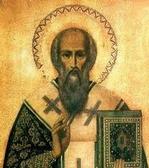At the Vatican, too, personnel is policy
By Phil Lawler ( bio - articles - email ) | Aug 14, 2025
Summers are usually quiet around the Vatican. Most officials of the Roman Curia—like most other residents of Rome—leave the city for cooler vacation spots, leaving important policy decisions until the fall. This year, with a new Pontiff settling into his work, and the Catholic world anxiously waiting for indications of his plans, things seem even quieter than usual.
But the summer days are already dwindling, the sun is setting earlier, and fall will soon be upon us. Rather than trying to read deep meanings into small papal gestures, and anticipate what Pope Leo could do, we might consider the questions that will certainly confront him in September.
To date Pope Leo has played his cards close to his vestments, giving only occasional hints (sometimes contradictory) about what sort of initiatives he has in mind. We know that he is working on an encyclical, but we don’t know the topic. We know that he has a background in canon law, and has shown a preference for doing things “by the book” without dramatic gestures, but now, as the supreme legislator of the Church, he has the authority to change canon law. So let’s be honest: Grand theories to the contrary notwithstanding, we don’t know what the Pope is going to do. However we can identify some of the important issues that will be sitting on his desk.
At the Vatican, as in any organization, personnel is policy. After his election, Pope Leo confirmed all the leaders of the Roman Curia in their positions temporarily, keeping them in office while he took his bearings. Now he will certainly want to replace at least a few prefects who are already past retirement age. He might also want to replace a few whose views and/or personalities clash with his own plans.
One important dicastery will definitely need a new prefect. The powerful Dicastery for Bishops was led, before the conclave, by Cardinal Prevost. He is no longer available, having moved into the apostolic palace.
Several other prelates are well beyond the retirement age (75), and overdue for replacement. Pope Leo may choose to leave them in place, but their resignations are already on his desk and it would be no surprise if he accepted them. They are:
- Cardinal Michael Czerny, SJ, the prefect of the Dicastery for Integral Human Development, who is now 79.
- Cardinal Kevin Farrell, the prefect of the Dicastery for Laity, Family, and Life, who will be 78 on September 2. Cardinal Farrell also has been curiously close to scandals—of which he has pleaded ignorance—and yet was chosen by Pope Francis to handle the Vatican’s secrets. Pope Leo may want someone more perspicacious to act as camerlengo and president of the Pontifical Commission for Confidential Matters.
- Cardinal Marcello Semeraro, prefect of the Dicastery for the Causes of Saints, is now 77.
- Cardinal Arthur Roche, prefect of the Dicastery for Divine Worship, is 75, and has become a lightning-rod for criticism by traditionalist Catholics.
- Cardinal Kurt Koch, prefect of the Dicastery for Christian Unity, is also 75. Last week he made an unguarded public call for relaxation of restrictions on the Traditional Latin Mass. That statement could have been an indication that he knows Pope Leo’s plans. On the other hand it could be an indication that he expects his resignation to be accepted.
Those are the most obvious candidates for replacement in the leadership of the Roman Curia. Other personnel changes, while far less likely, could reveal more about Pope Leo’s priorities. For instance:
- Cardinal Victor Fernandez, the prefect of the Dicastery for the Doctrine of the Faith, is nowhere near retirement, at the age of 63. But he has been closely identified with some of the most controversial theological positions taken by Pope Francis.
- Sister Simona Brambilla, the prefect of the Dicastery for Religious, is the first woman—and the first non-bishop—ever to serve in as a Vatican prefect. Some canonists argue that her appointment violated the Church’s own canon law, which requires episcopal leadership of Vatican dicasteries.
- Cardinal Mario Grech is secretary-general of the Synod of Bishops, which has taken on new prominence during the Synod on Synodality. Pope Leo may want to dial back the power of that office, or put his own chosen lieutenant in charge.
Finally, no discussion of Vatican leadership would be complete without a mention of Cardinal Pietro Parolin, the Secretary of State. At 70 he is not close to retirement age, but he has held the #2 position at the Vatican for a dozen years, accumulating some of the baggage that inevitably attaches to decision-makers. Here too it is possible—if not probable—that Pope Leo would want his own man.
All comments are moderated. To lighten our editing burden, only current donors are allowed to Sound Off. If you are a current donor, log in to see the comment form; otherwise please support our work, and Sound Off!





